Disclosure: Meeple Mountain received a free copy of this product in exchange for an honest, unbiased review. This review is not intended to be an endorsement.
I played Magic: The Gathering in middle school, back in the days when there was only one format. Standard was all we knew, and we were happy for it. Decks were only sixty cards, and your health started at 20. Not like the kids today, with their Pauper and their Commander formats, their Draft (RIP) and Collector and Set (RIP) Packs, their dizzying metagame that relies on knowledge of thousands and thousands of cards. It’s all too much.
On top of that, there’s the time commitment and the financial commitment, which are even more daunting. Did you know preconstructed decks for Magic cost $50 or $60 now? When I was a youth, they were around $12. For the cost of an upmarket board game, you can now get one (1) deck of Magic cards. Dizzying. All of this is to say, even if one were inclined to dip one’s toes back into those waters, it’s not the most inviting space.
I get what CCGs (collectible card games) offer players, though. I do understand the appeal. The good ones allow for a wealth of strategies. Players can customize their decks to reflect their personalities and interests. You can find a favorite card and build an entire engine around it. That level of ownership over the play experience is a big part of the culture.
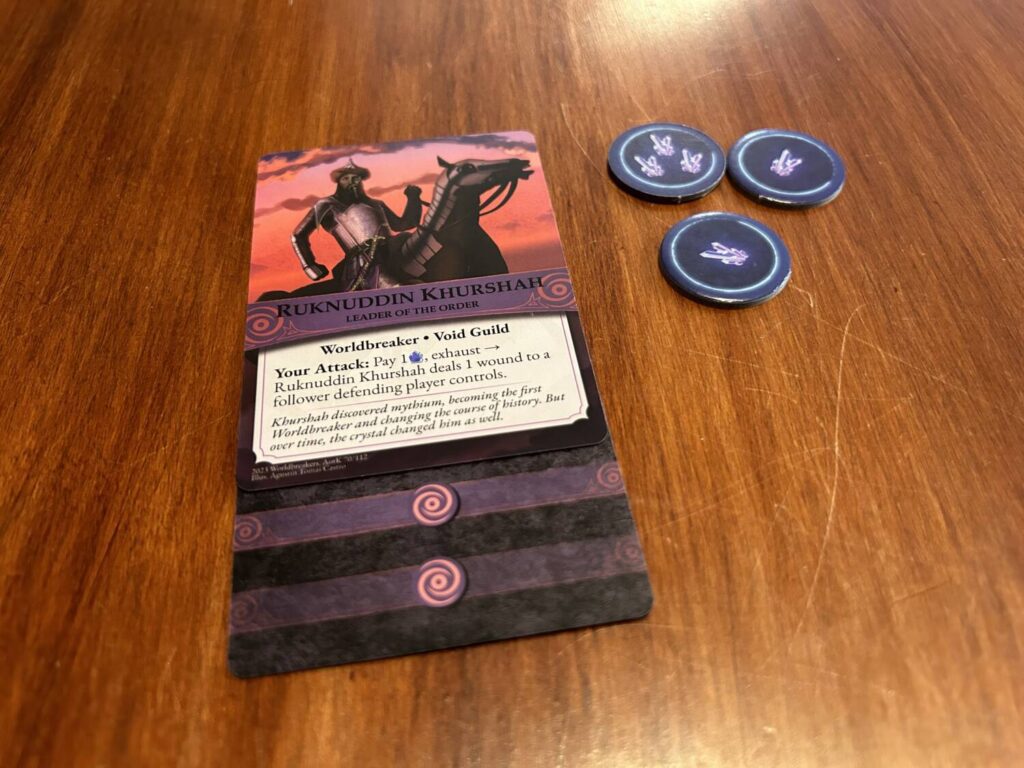
Improvements
Worldbreakers is a new card game from designers Elli Amir and Jamie Perconti, one that draws directly and openly from the Magic well. Unlike Magic, though, Worldbreakers is contained. The Advent of the Khanate box includes four decks, each representing one of the game’s four Guilds, and you can play the moment you open the box.
Teaching the game is breezy. If you’re introducing someone familiar with CCGs, it takes less than two minutes to get going. Even players who don’t have CCG experience won’t find themselves too far out of their comfort zone. Worldbreakers is a smart, sensible design, with limited use of keywords and iconography. The strategy for each deck is steered by its Worldbreaker, the figure at the head of your Guild. Each encourages a different approach. Khutulun wants you to smash skulls, while the Muhandasat encourages card cycling in a game with an agonizing card economy. All of these choices add up to a game that’s inviting the moment it hits the table.
My favorite part of Worldbreakers is the round structure. Each round consists of four turns per player, during which you take a single action. Each and every action, particularly as the game accelerates towards the end, has timing considerations. You constantly weigh the costs and benefits of doing something now or later. If you wait, you might get more out of it, but there’s also a decent chance that your opponent will render it irrelevant. At the end of each round, some upkeep is performed, and you switch turn order. The player in the disadvantaged position this round gets to go first next round, which means they get two actions in a row. In a game this intentionally paced, that’s huge.
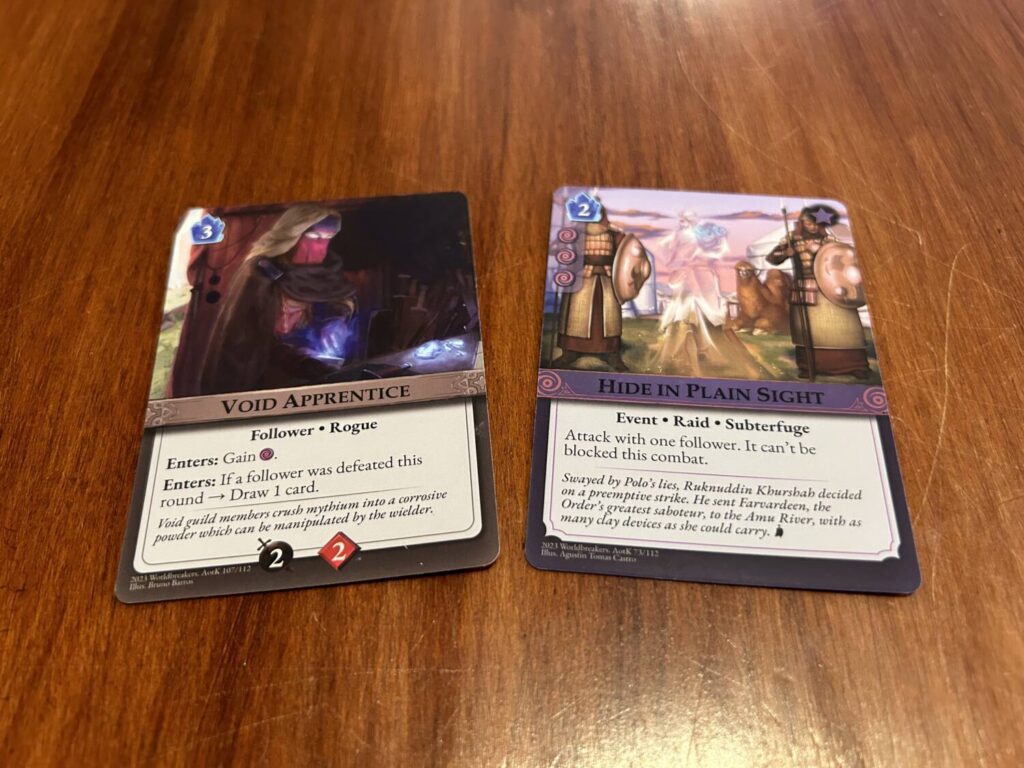
Cards come in three types: Followers, which are played to the table in front of you and can be used to attack your opponent; Locations, which provide powerful bonuses; and Events, which trigger one-time changes. You pay for them with Mythium, Worldbreakers’s resource of choice. Another huge improvement, in my opinion: Mythium is not tied to the cards in your deck. There are cards that give you Mythium, of course, but you can always take some as an action, and you get a bit at the end of each round. This greatly decreases the chances that you will lose a game of Worldbreakers simply because you do not draw the cards you need to be able to play other cards, my absolute least favorite part of Magic.
Don’t let that make Worldbreakers sound generous, though. You’ll always wish you had more Mythium. You’ll also wish you had more cards. There are only 30 in each deck, and you move through them slowly. A gained card draw in Worldbreakers is something to cheer, and the cards, by and large, are worth the excitement. You also have a decent sense of what you might draw. A single card from a deck of 30 is much more of a controlled, strategic proposition than a single card from a deck of 60 or 100. This is Magic for people who distrust random number generation.
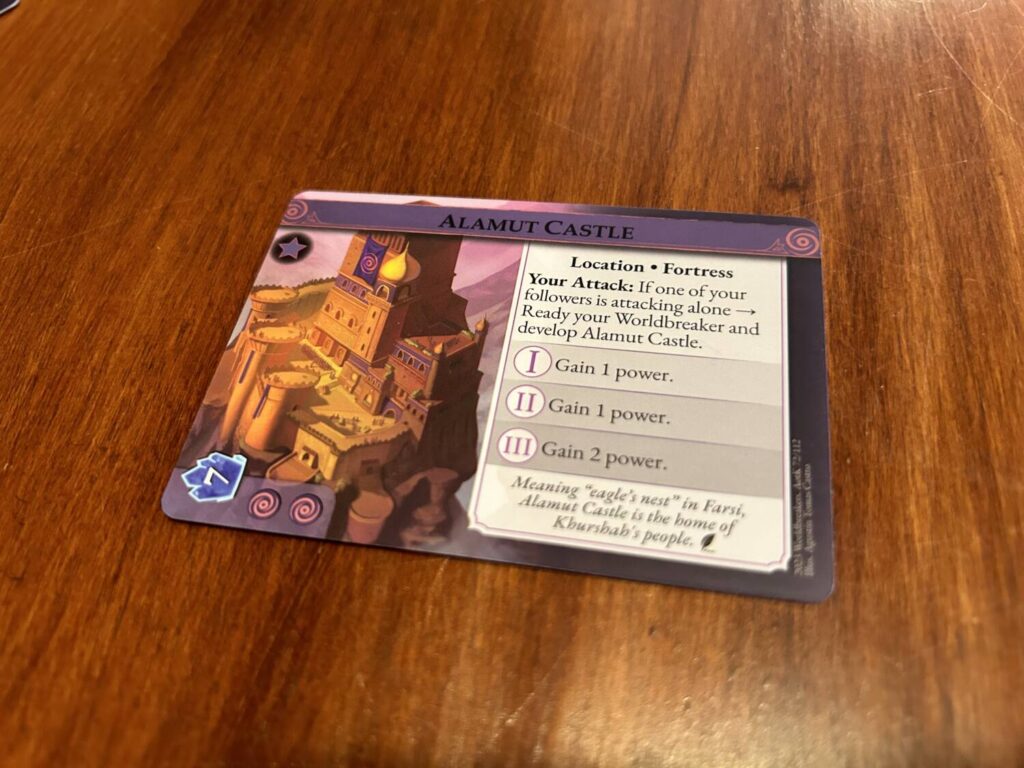
Deal Me In
If you’re inclined towards customization and discovering heretofore unknown combinations, Worldbreakers allows for that. You can build a custom deck, mixing different Guilds, but I can’t speak to the experience. There’s an art to building the algorithm that is a good deck of cards, but I don’t have the passion for it. I’m much more interested in running and appreciating the algorithms others have thought up for me. The manual also includes instructions for a Winston draft and there’s a solo campaign mode.
I am impressed by Worldbreakers. It offers all the things I want in a card game of this type—exciting draws, clever plays, thrilling and dramatic reversals of fortune—without getting bogged down in the aforementioned things that keep me from playing them more. The art is evocative, every decision is tense, it moves intentionally, and it’s a blast to play. I don’t think I’ll ever be returning to Magic: The Gathering, but I’m more than happy to keep coming back to Worldbreakers again and again.


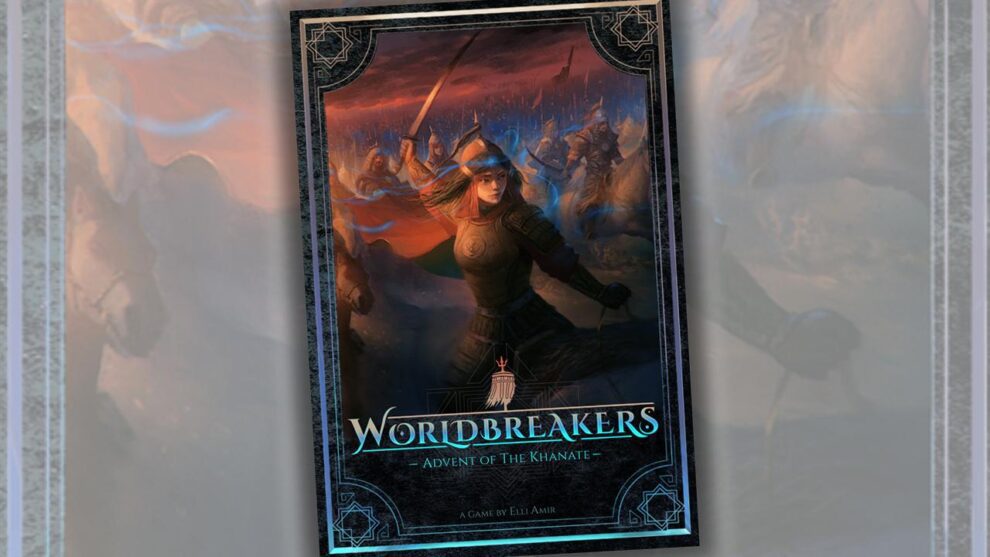



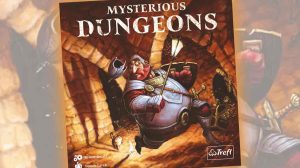




Add Comment